Rabbi Yitzchak Avraham: "I Sought the Truth and Found It; Now I Work So Others Can Know This Truth Too"
Rabbi Yitzchak Avraham, the yeshiva student who manages a thriving study center in Modiin and successfully brings dozens of teens closer to Judaism, does so out of a great sense of mission. Twenty years ago, he himself was on the opposite side. In an emotional conversation, he recalls his past—from his time in the Navy to the day he entered the yeshiva. And how does Rabbi Uri Zohar's tomato relate to this story?
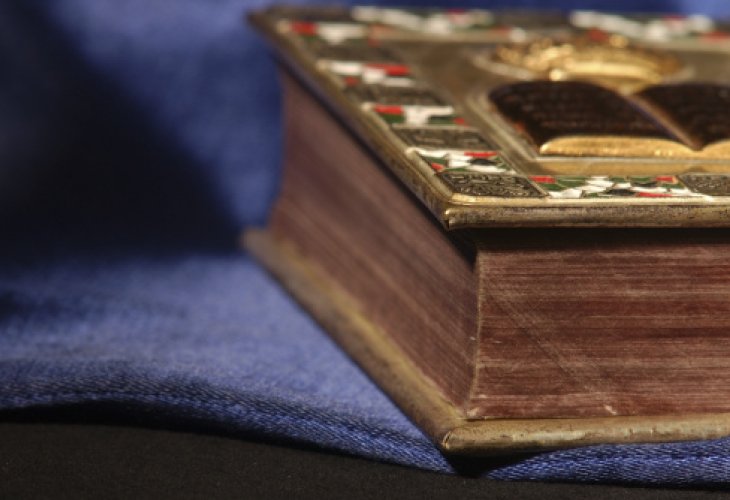
Rabbi Yitzchak Avraham is a yeshiva student living in the city of Modiin Illit (Kiryat Sefer) for the past 18 years. During all these years, he has been studying at a halacha yeshiva in the city. At a glance, he may seem like just another of the many yeshiva students residing in this central Charedi city.
But he is not. At least twice a week, in the evenings, you can see him traveling to nearby Modiin, where he manages a study center for secular traditional teens. "I bribe them a little," he explains with a smile, "and to ignite their initial interest in coming to the center, I offer deals on electronic cigarettes and bring them pizza or shawarma. Later, they come on their own because the Torah genuinely interests them. I bring more cars filled with yeshiva students from Kiryat Sefer with me. They sit with the boys one-on-one, study Mishnah with them, tell them about Judaism, and answer their questions."
The study center is full of reinforcement and amazing and emotional stories. "Just this week, one of our boys entered a yeshiva in Jerusalem, and two days ago, a boy who studied at the center got married and is now about to establish a kosher home in Israel. We also have boys who have become yeshiva students," he shares with satisfaction.
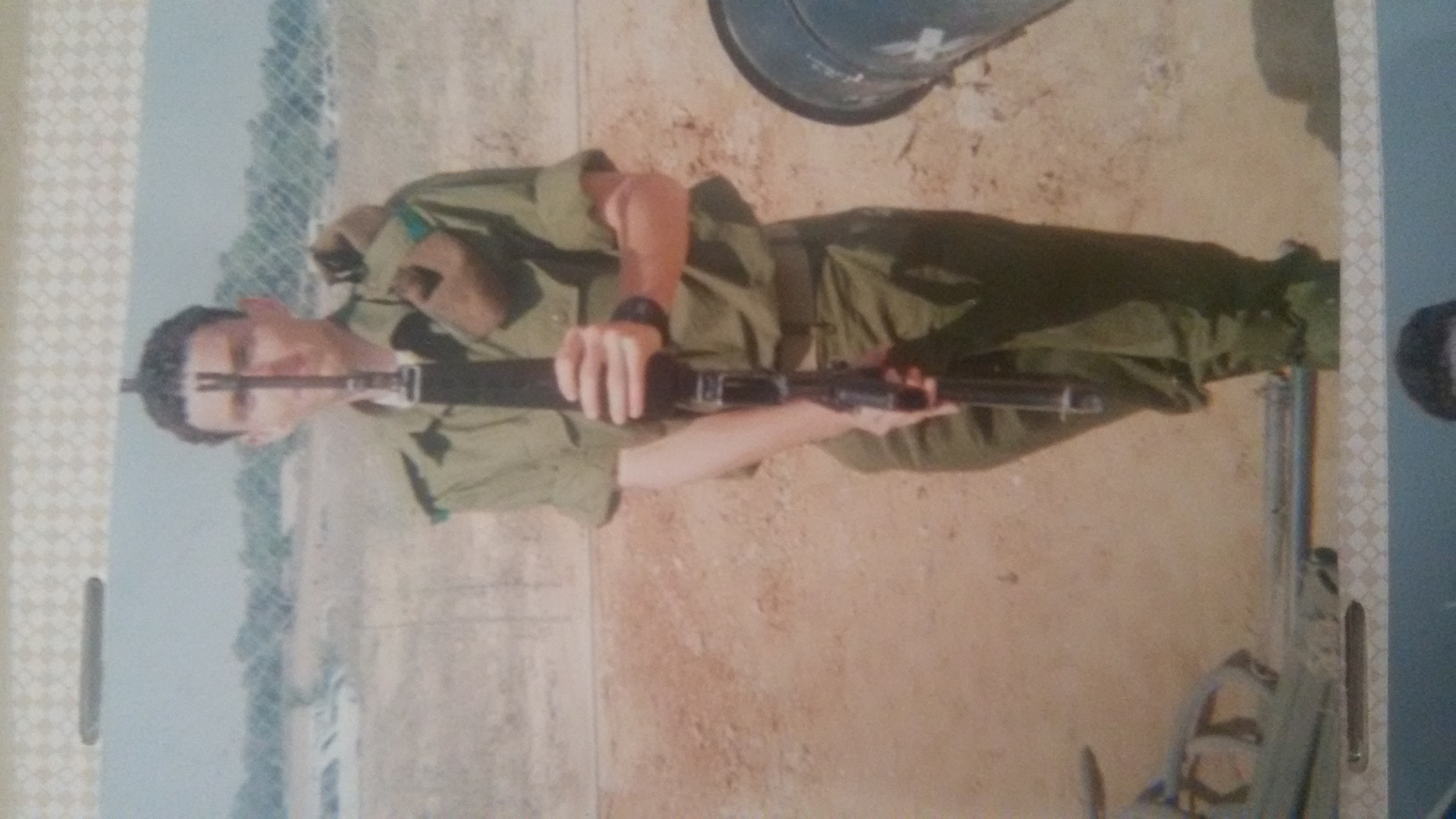 From his youth
From his youthLate Night Questions
The great success of the study center is undoubtedly thanks to the immense dedication of its leaders. It also stems from another reason: Rabbi Yitzchak is familiar with the boys' feelings from up close, as he himself was in a very similar place about twenty years ago.
"I was born into a traditional family," he shares. "We had a mezuzah at the entrance to our house; there was also a Seder night and Yom Kippur, but not much more. As a child, I was naturally sent to non-religious schools, and as a teenager, I studied at a vocational school. I completed my studies in technical, computing, and control, and then, after deferring service, I enlisted in the Navy and served on missile boats."
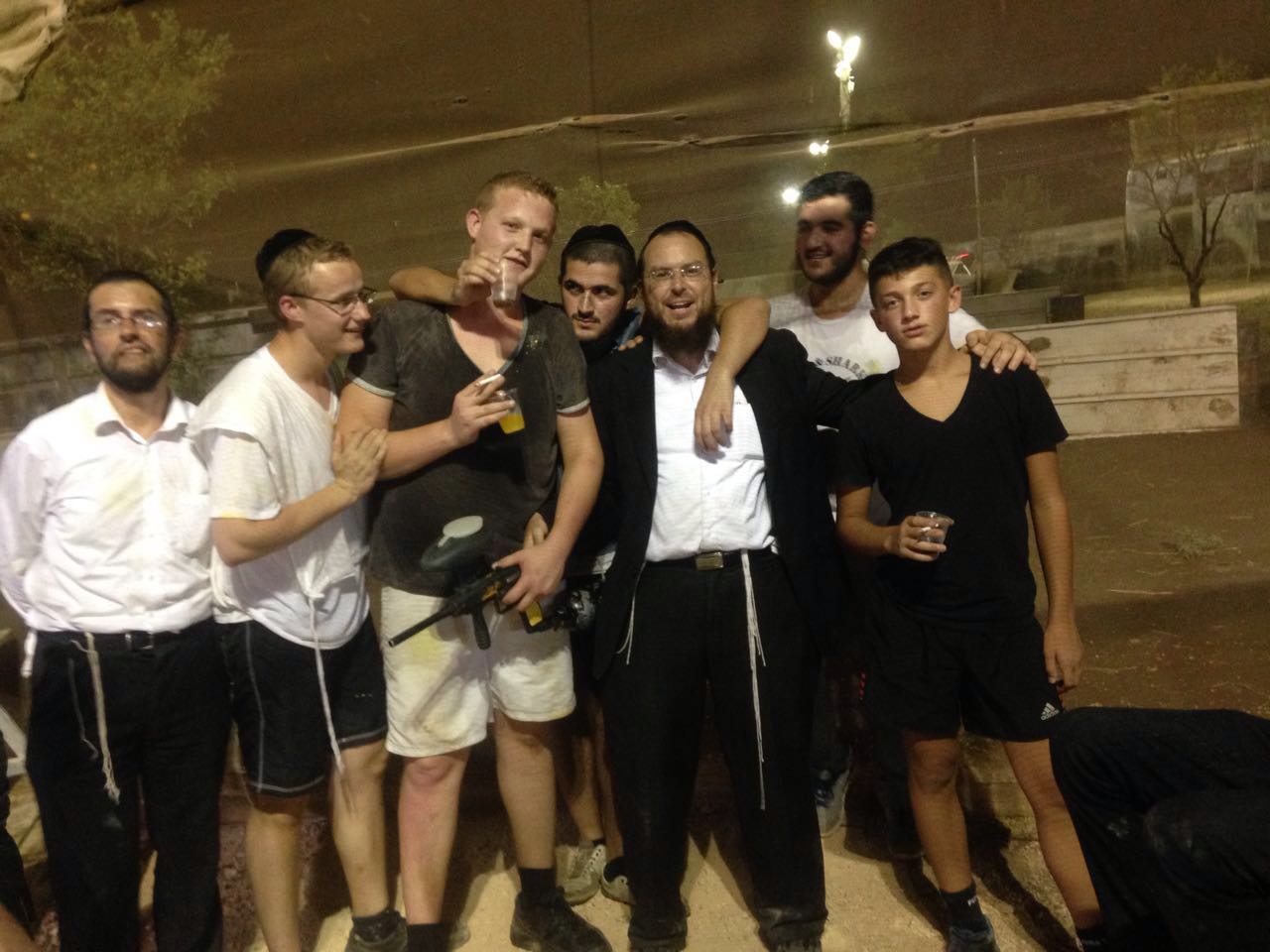
"My role was to load shells onto the ship and also to handle electronic warfare equipment. The load was very heavy, and one day, while carrying it, I started to feel pain in my lower back. At first, I didn't pay much attention to it, but the pain persisted for several months. I realized I needed to check why I was in pain. I underwent a long series of tests, after which the doctors concluded that I was probably imagining the pain. I felt great sorrow because I was in a lot of pain, and especially because no one believed I was genuinely hurting. This led me to think a bit about the nature of suffering in the world—why a person suffers so much." Nowadays, looking back, he notes this was the initial start of his connection with Hashem.
In the meantime, Yitzchak continued to serve in the army, eventually enlisting in a career service. "My good friends were discharged and traveled abroad," he recalls. "Unfortunately, two of them were killed in hiking accidents, and another lost his life after spending a night in Copenhagen smoking problematic substances. I remember meeting friends who returned, and one of them lived with me in the apartment. We had many late-night conversations. He told me about all the Eastern beliefs he encountered, and I, in my naivety, asked him: 'If I'm already making time to learn all these Eastern beliefs, why shouldn't I first try to discover my true roots?'"
He wasn't asking this rhetorically; he genuinely had a strong desire to connect internally, to the roots. However, in those days, he didn't know how to do it, and there was no one he could ask.
Then, one day when Yitzchak returned from the base, he found an advertisement under his apartment for a lecture by Rabbi Uri Zohar at a community center near the Technion. "My apartment was very close to the Technion, and I decided that if the rabbi was coming to me, then I had to go hear him speak."
Funeral Kippah
Yitzchak went to the community center, 'peeked and got hurt.' "It was surprising because the beginning of the lecture didn't reveal anything new to me. The rabbi spoke about hell, the afterlife, and soul reincarnation. All of this wasn't new to me, but what particularly captivated me was when he later spoke about the tomato for a quarter of an hour. He tried to illustrate what would happen to the tomato if it didn't have a peel—it wouldn't last a moment. Moreover, how the seeds of the tomato in the ground know which direction to grow in? How do they know where the sky is and grow accordingly? And much more. This amazed me. It opened a door to see life with a different eye, as something not taken for granted. I understood there must be someone managing things."
The lecture ended, and when Yitzchak was offered to join a seminar, he knew clearly he would do so. "At the time, I was right in the middle of getting a bachelor's degree. I decided to make use of my free time at the seminar to advance academically. Of course, in the end, I didn't study a word for the degree, but instead was captivated by the lectures. These were exactly the lectures I was looking for. I wanted to understand the truth and get answers to all the pressing questions I had, and indeed, the best lecturers of twenty years ago were there. They spoke and explained, and managed to answer the hardest questions, all in good taste."
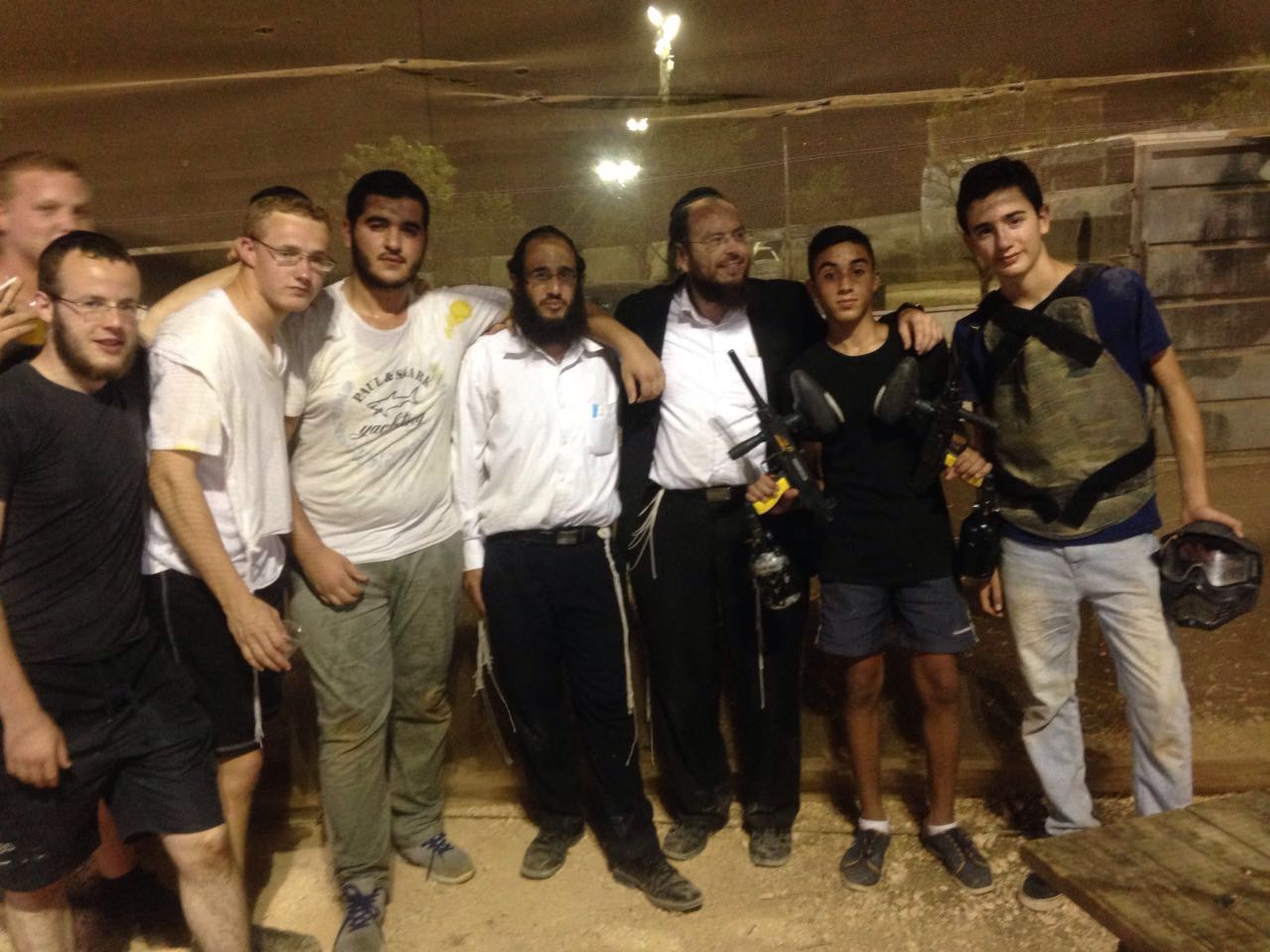
During the seminar, Shabbat approached, and Yitzchak found himself heading to his room, feeling the kippah in his pocket on the way. "Always, during my military service, I had a kippah in my pocket," he explains, "I called it 'the funeral kippah,' because the only times I would take it out were at funerals. But during that time, when I went to the room to prepare for Shabbat, I found a small pin along the way and felt it was a sign from above that I should attach it to the kippah and put it on my head. This was the first Shabbat I had the privilege to keep."
And wasn't it hard for you with all that Yiddishkeit (Jewish life)?
"Not at all, quite the opposite – it felt like I had the privilege to embrace the Master of the Universe, my beloved father, whom I hadn't known or met for twenty years."
On that Shabbat's end, Yitzchak returned to the Navy base. "Everyone around me was secular. I didn't reveal where I was going, nor did I tell them where I returned from. The thing is, when I was at the seminar, I realized that the Torah of Israel is so profound that it encompasses everything happening in the world. I was sure the Torah had something to say about every aspect of my life—how to shower, shave, and dress. So I dared not do anything because I feared doing it incorrectly. On Sunday, first thing in the morning, I went to a Judaica store and asked where I could find a book that teaches everything I needed to do. The seller handed me the Kitzur Shulchan Aruch, and I sat and read it for hours, devouring it with immense thirst, only then beginning to understand the laws and realizing how a Jewish person should truly behave."
The Family Draws Close
Yitzchak returned to his routine in the army. "But it was a different kind of routine," he says, "because suddenly the main thing that interested me was observing the religious world within the military. I remember there was a religious guy amongst us, and I noticed he wasn't really behaving as I'd expect. He mingled with female soldiers and sometimes ate without hand washing and blessings. This bothered me; I couldn’t understand how someone religious didn’t serve God in the true way. Even while on the ship, I saw a religious soldier and focused on him, but then I noticed he didn't really keep up with prayers, and when asked, he said, 'It's because I have so much work; how can I pray?' He didn't even have a kippah on his head, and explained, 'It falls off constantly.' It really grated on me to see these things because I felt they were deceiving. I expected a religious soldier would have holy books in his room, not a newspaper like Yedioth Ahronoth."
Was there a genuine and esteemed figure you met along the way?
"Yes, it might be surprising, but my father was that person. He accompanied me during those years, and although he didn’t define himself as observant at that time, he helped me greatly. My father and mother were always people of law and order, so for instance, if it said you could drive at 90, it was clear to them you drive only at 90. I leveraged this, and my father really supported and encouraged me, telling me that if I am searching for the truth, I should go all the way. He was even proud of me, and so we also began observing Shabbat meals at home. My father made sure to cover the television that was on in the living room at the time. Later, he moved it to the bedroom and eventually turned it off there as well."
In the days that followed, Rabbi Yitzchak shares that his parents also completely returned to Judaism, and his sister, who had a boyfriend at the time, decided to go to the seminar together. Both returned to Judaism, got married according to the faith of Moses and Israel, and today are fully observant. His brother-in-law even serves as a Charedi rabbi. "Another sister of mine also observes mitzvot and lives in Haifa," he shares, "so in fact, my entire family came closer to Judaism."
The Torah Fulfills
At some point, Yitzhak was discharged from the army, realizing it was his chance to enter a Charedi study framework. And where would he study? "The only yeshiva framework I knew was in the Nachalat Levi’im Yeshiva in Haifa, near where I lived," he explains. "So I came to study there, and it was the first time I saw yeshiva students genuinely immersed in Torah. I felt proud of them. I remember coming to the classes that were given daily in the yeshiva, and although I didn't understand half of what was said, I eagerly absorbed every word. This was exactly the atmosphere I was searching for."
Later, he was recommended to join the Yeshiva in Kiryat Malachi, where he studied until he got married 18 years ago to his wife Shirley. Together, they have also been blessed with two sweet daughters – Naomi and Yael.
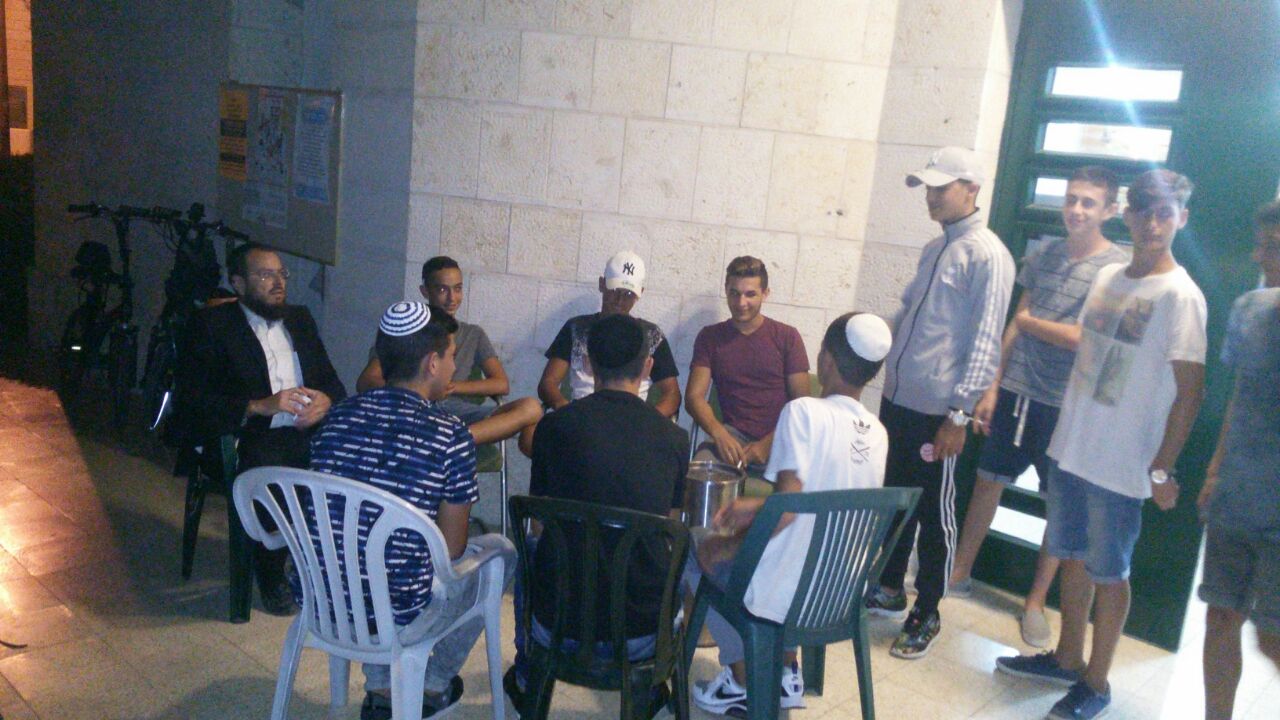
"Initially, we lived in Modiin, because my feeling was that true outreach to secular youth can only happen when living near them," he explains. "And I wanted so much to influence them. We would host many boys at our home each Shabbat, holding conversations with them until the early hours of the morning. I felt this was an enormous privilege – to be on the supportive side, the influencing side."
However, as years went by and his eldest daughter grew, he realized it would not be easy to raise her in a secular environment, so they moved to Modiin Illit, yet Rabbi Yitzchak did not abandon the study center and travels several times a week to Modiin to increase Torah and draw hearts closer.
He also wants to send a concluding message: "It's very important for me to tell anyone at the beginning of the process that they should know that Torah is fulfilling. Life with Torah fills a person, calms the soul, and does so much good. I see people who are eager to travel far, to South America or the peaks of the Himalayas, but they don’t realize this good is so close to us. It's a real good, an inner fulfillment, and I recommend everyone simply try it. As the saying goes – 'Taste and see that the Lord is good,' once you taste, you immediately feel this goodness."

